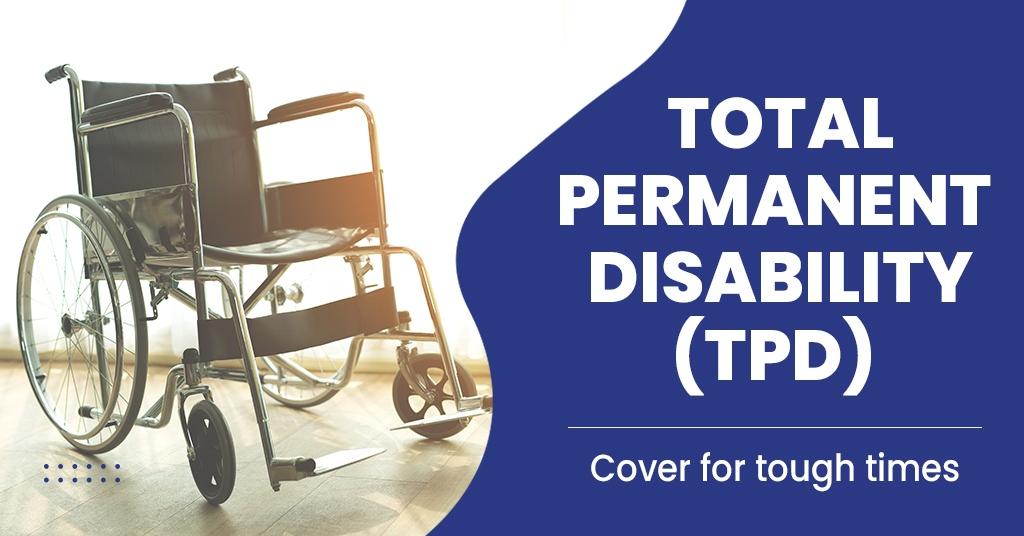When we look closely into the range of insurance options available in modern Australia, it also makes sense to cast our eye over TPD insurance, or ‘Total Permanent Disability’ insurance. Before we delve deeper, it’s worth giving ourselves a definition of the term by answering the question:
What is TPD insurance?
Total Permanent Disability (TPD insurance), as the name suggests, provides the policyholder with financial cover if they are unfortunate enough to be unable to work because of becoming totally, permanently disabled for any reason except the caveats noted below.
TPD insurance is available only to Australians considered ‘gainfully employed’ and comes in the form of a lump sum payment in case of a successful claim. This represents the ideal way to boost funds and cover essential medical/rehabilitation costs.
Who is TPD insurance for?
TPD insurance is designed to give working people peace of mind, knowing they will be looked after financially should they be unlucky enough to suffer total, permanent disability at some future point.
Factors affecting eligibility for TPD insurance and amount of coverage required
- Age – TPD insurance is accessible to anyone aged 19-62 but premiums will be higher as age increases.
- Occupation – Individuals putting themselves at greater risk of becoming totally and permanently disabled at work are bound to pay higher premiums and, in some cases, be refused TPD insurance coverage altogether.
- Lifestyle – A wide range of factors are taken into consideration, from exercise and overall fitness to smoking, drinking, and drug-taking. It is also imperative to disclose any dangerous hobbies like mountain-climbing the Flinders Range in South Australia etc.
- Health status and history – Any evidence of pre-existing conditions deemed contributory will be taken into account and may increase TPD insurance premiums accordingly. The same is true for evidence of hereditary diseases in the wider family history and all must be divulged at the time of receiving a quotation.
If your circumstances happen to take a change in the right direction, you could find yourself entitled to a lower premium and can officially request an alteration. Positive changes would be deemed to include, but not limited to the following:
- Stopping any unhealthy habits
- Changing to a less risky profession
- Ceasing dangerous pastimes
- Proven improvements in health and exercise regimes
Situations precluding payment of a TPD insurance claim
Insurance companies differ but many of the following preclusions will be very similar throughout the industry. Your claim will be denied in case of the following:
- Cases brought on by self-inflicted acts
- If the policyholder is entitled to terminal illness benefit payments through a separate life insurance policy
- If the affected party does not survive the event resulting in their total and permanent disability for 14 days
Conclusion: Is TPD insurance right for you?
The answer is, of course, it depends on your exact circumstances. However, if you can afford the premium and would take comfort from knowing you are fully covered should the worst happen, TPD insurance is a superb way to facilitate that.
